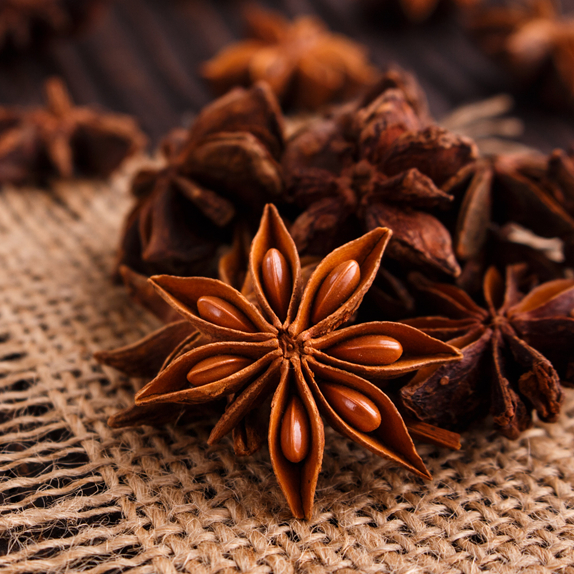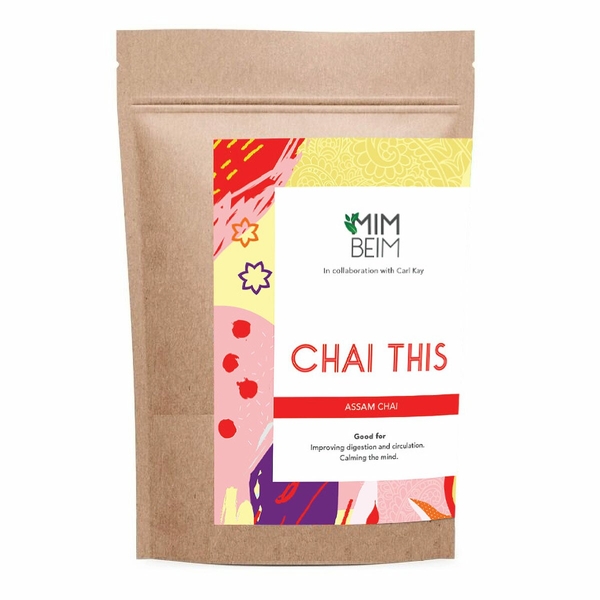
Star anise
Scientific names: Illicium verum
Family: Illiciaceae
Alternate names: Anis de Chine, Anís Estrellado, Anis Étoilé, Anis Étoilé Chinois, Aniseed Stars, Anisetree, Anisi Stellati Fructus, Ba Jiao Hui, Badiana, Badiane, Badiane de Chine, Bajiao, Chinese Star Anise, Eight-Horned Anise, Eight Horns, Illicium, Staranise tree
Actions: Analgesic, Antimicrobial activity, Antiviral properties, Hepatic, Insecticidal
Background
Star anise (Illicium verum) is an evergreen shrub or small tree native to Asia. It’s traditionally used as a spice in food, and also as medicine.
Star anise seeds contain chemicals that might have antibacterial effects. It also contains a chemical called shikimic acid, which is used to make oseltamivir (Tamiflu), a flu treatment. But it’s not clear if star anise itself has antiviral effects.
People use star anise for respiratory infections, stomach disorders, colic in babies, and many other conditions, but there is no good scientific evidence to support these uses.
In 2003, the US FDA warned consumers not to consume teas brewed from star anise due to reports of serious side effects. Some star anise tea products have been contaminated with Japanese star anise (Illicium anisatum), a known poison.
Star anise seeds contain chemicals that might have antibacterial effects. It also contains a chemical called shikimic acid, which is used to make oseltamivir (Tamiflu), a flu treatment. But it’s not clear if star anise itself has antiviral effects.
People use star anise for respiratory infections, stomach disorders, colic in babies, and many other conditions, but there is no good scientific evidence to support these uses.
In 2003, the US FDA warned consumers not to consume teas brewed from star anise due to reports of serious side effects. Some star anise tea products have been contaminated with Japanese star anise (Illicium anisatum), a known poison.
Safety Safety definitions
When taken by mouth: Star anise is commonly consumed as a spice in foods. But star anise is possibly unsafe when consumed as a tea. Star anise teas may be contaminated with Japanese star anise (Illicium anisatum), which is poisonous. It may not be possible to tell if a specific product contains only star anise. Star anise can also cause serious side effects when used in large doses.
Children: It is possibly unsafe for star anise to be taken by mouth in children. Serious side effects, including vomiting and seizures, have been reported in infants and adults given star anise tea. Star anise teas may be contaminated with Japanese star anise (Illicium anisatum), which is poisonous. High doses of star anise can also cause serious side effects.
Special Precautions & Warnings:
Pregnancy and breast-feeding: Star anise is commonly consumed as a spice in foods. But it is possibly unsafe to consume star anise as a tea. It can cause serious side effects. Stay on the safe side and avoid use.Children: It is possibly unsafe for star anise to be taken by mouth in children. Serious side effects, including vomiting and seizures, have been reported in infants and adults given star anise tea. Star anise teas may be contaminated with Japanese star anise (Illicium anisatum), which is poisonous. High doses of star anise can also cause serious side effects.
Effectiveness
Effective Effectiveness definitions
There is interest in using star anise for a number of purposes, but there isn’t enough reliable information to say whether it might be helpful.
Dosing & administration
Star anise is commonly used as a spice in foods. But as medicine, there isn’t enough reliable information to know what an appropriate dose of star anise might be. Star anise teas may be contaminated with Japanese star anise (Illicium anisatum), which is poisonous. Speak with a healthcare provider before use.
Interactions with pharmaceuticals
It is not known if Star Anise interacts with any medicines. Before taking Star Anise, talk with your healthcare professional if you take any medications.
Interactions with herbs & supplements
There are no known interactions with herbs and supplements.
Interactions with foods
There are no known interactions with foods.
vital.ly has licensed monographs from TRC Healthcare.
This monograph was last reviewed on 18/11/2024 11:00:00 and last updated on 23/09/2022 17:43:31. Monographs are reviewed and/or updated multiple times per month and at least once per year.
Natural Medicines disclaims any responsibility related to medical consequences of using any medical product. Effort is made to ensure that the information contained in this monograph is accurate at the time it was published. Consumers and medical professionals who consult this monograph are cautioned that any medical or product related decision is the sole responsibility of the consumer and/or the health care professional. A legal License Agreement sets limitations on downloading, storing, or printing content from this Database. No reproduction of this monograph or any content from this Database is permitted without written permission from the publisher. It is unlawful to download, store, or distribute content from this site.





